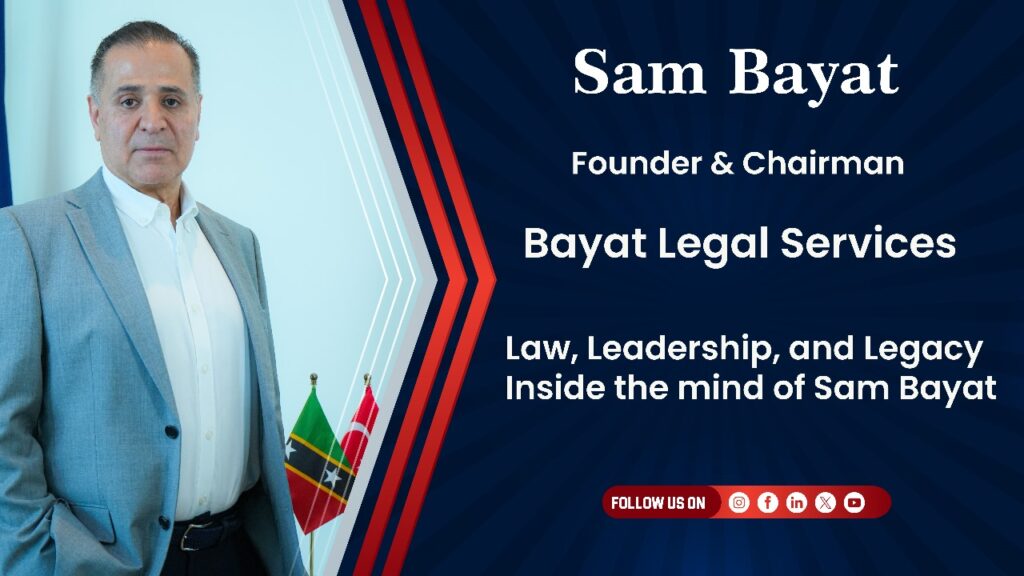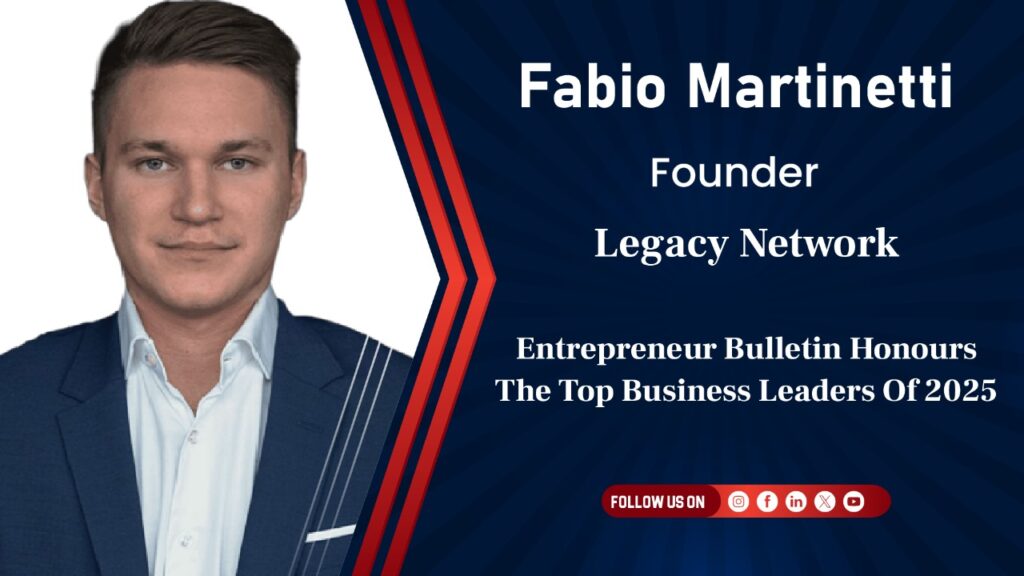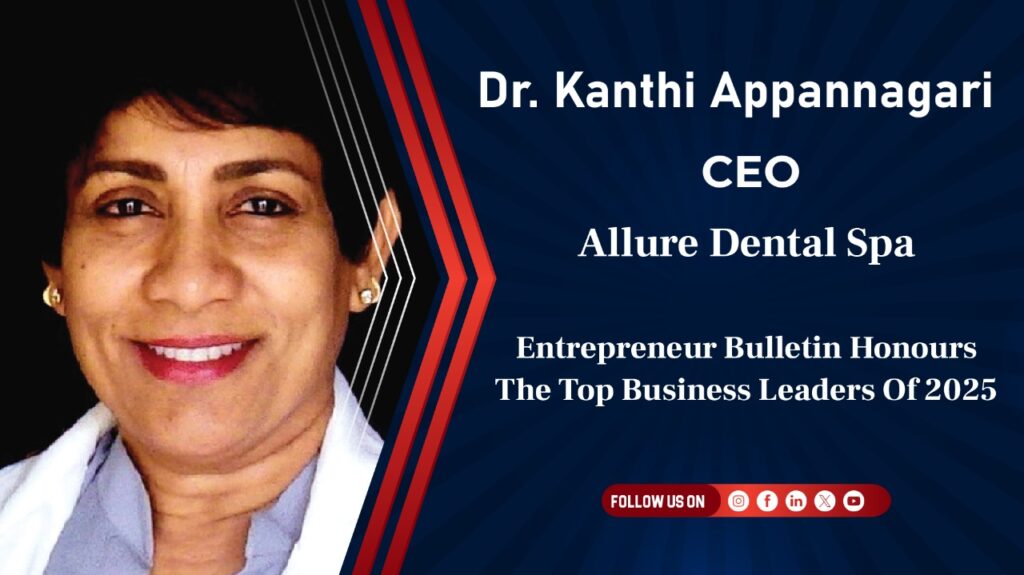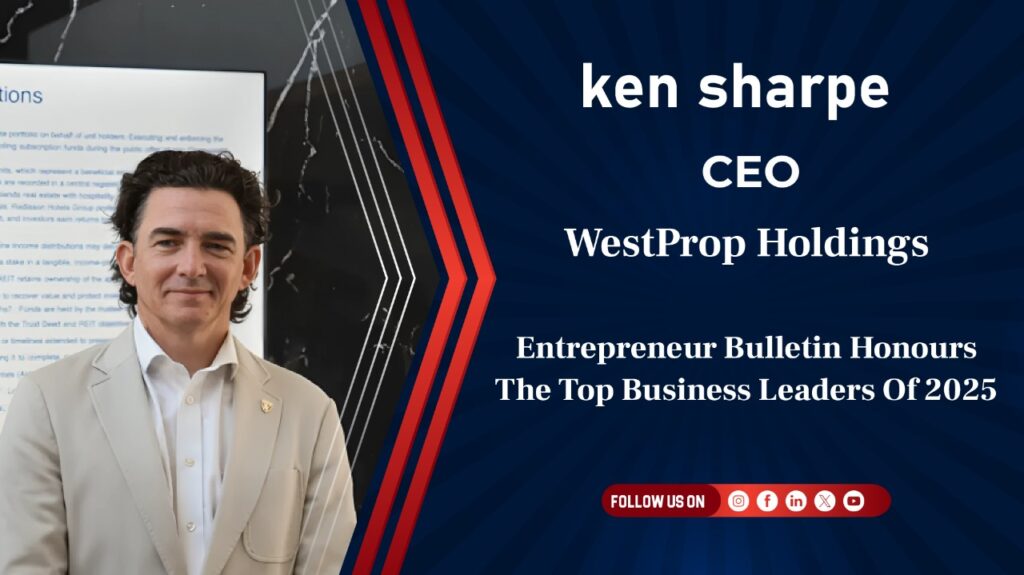Breaking the Compute Barrier: Axel Kloth’s Revolutionary Vision for the Future of Semiconductors
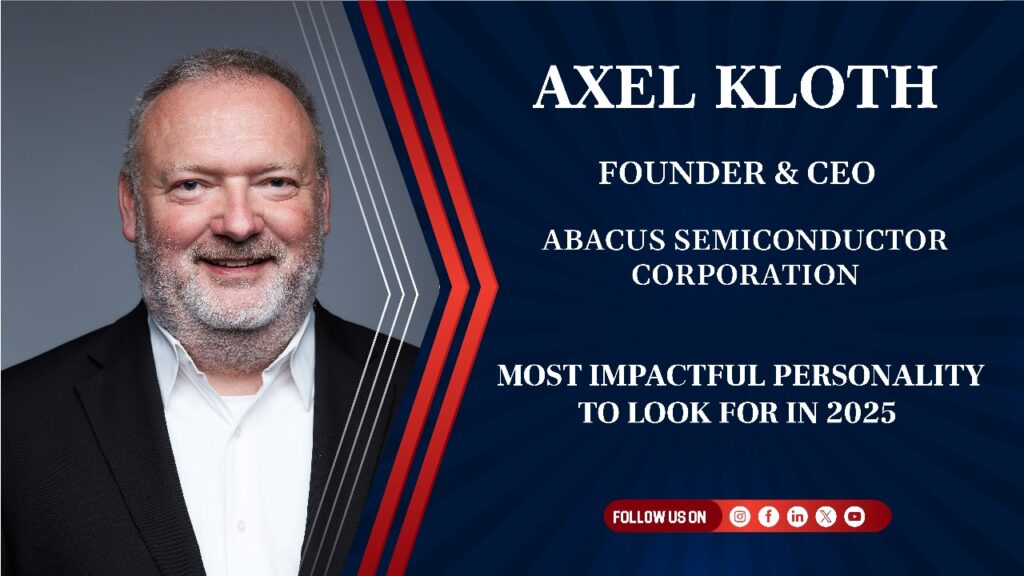
Discover how Axel Kloth, Founder & CEO of Abacus Semiconductor Corporation, is revolutionizing compute architecture with scalable, energy-efficient solutions that challenge traditional CPU-GPU models. Explore his vision for the future of AI, HPC, and semiconductor design in this in-depth interview.
In an age increasingly defined by the limits of compute infrastructure and the soaring ambitions of artificial intelligence, few names resonate as deeply as Axel Kloth. The Founder and CEO of Abacus Semiconductor Corporation, Kloth is not just another engineer in a semiconductor world filled with incremental thinkers—he is a philosophical disruptor who dares to reimagine the very fabric of computational systems.
At a time when high-performance computing (HPC), data centers, and AI workloads demand power efficiency, scalability, and architectural ingenuity, Kloth’s radical rethinking of hardware design has positioned Abacus as a potentially epoch-defining force in the semiconductor domain.
The Genesis of Abacus: Addressing a Fundamental Flaw
The story of Abacus Semiconductor is one born of frustration—a trait not uncommon among visionary founders. Kloth, with decades of experience using and designing systems for HPC and AI, had reached a limit. The prevailing compute infrastructure was broken.
“Current industry-standard processors and general-purpose GPUs don’t scale linearly,” he says, noting the disturbing truth that 100 CPUs and 100 GPUs often yield less than 25x the performance of a single unit. The exponential cost—both financially and energetically—of attempting to build large-scale compute clusters with diminishing returns posed an existential problem to computational science.
Rather than accepting this inefficiency, Kloth saw an opportunity for rearchitecting compute itself—from the ground up.
Architectural Innovation: The Symphony of Scale
What makes Abacus truly revolutionary is not just faster or cheaper chips. It is the orchestration of compute tasks—much like a conductor guiding a symphony.
“In our model,” Kloth explains, “CPUs act like conductors. They direct, but do not perform. The real work is done by accelerators.”
This seemingly simple yet profound shift redefines how tasks are delegated in a compute environment. By enabling seamless, high-speed, low-latency communication between processors and accelerators—without routing through slow general-purpose ports—Abacus unlocks near-linear scaling of performance with the number of compute units.
Their breakthrough patent in heterogeneous compute architecture not only ensures intellectual protection but challenges an entire industry built around disconnected and inefficient compute modules. Their smart memory system further enhances performance, enabling accelerators and CPUs to share and protect data with unprecedented efficiency.
An Ecosystem for the Future: Quantum, AI, and Memory Integration
Far from designing for today’s problems alone, Kloth’s team is laying the groundwork for a computing future where boundaries between quantum accelerators, AI cores, and traditional processors blur into a unified architecture.
Whether training large language models, simulating molecular biology, or designing digital twins of entire cities, the Abacus platform provides a universal communication framework. AI workloads, often more about throughput than precision, benefit immensely from the company’s ability to optimize data flows and support compact data formats. Similarly, large coherent memory models open the door to smarter, faster, and more power-efficient digital simulations.
And if the world pivots toward quantum computing sooner than expected? Abacus is ready.
“Our architecture doesn’t care what kind of accelerator you plug in,” Kloth says. “As long as it follows our guidelines, it works.”
Fostering Innovation: Curiosity at the Core
For Kloth, innovation is less about corporate strategies and more about human psychology. “Curiosity is the lifeblood of our company,” he says plainly.
Every hire at Abacus must possess the technical chops, of course. But it’s intellectual curiosity—a desire to question, explore, and experiment—that fuels the company’s most radical breakthroughs. “We’d rather walk a path that leads nowhere than never explore at all.”
This culture of intelligent rebellion—of permission to challenge the status quo—has insulated Abacus from the stagnation that plagues even the most well-funded R&D departments elsewhere.
The Hurdles of Revolution: Boiling the Ocean or Not Enough?
Founding a deep-tech company is not for the faint-hearted. Kloth reflects on a curious paradox faced by visionaries. “You’re told not to ‘boil the ocean’ and simultaneously criticized for not being ambitious enough.”
Navigating that tension—between practicality and world-changing vision—requires intellectual courage. It also requires the ability to ignore some voices. “You simply can’t please everyone,” he admits, “and learning to tune out the noise was one of the hardest lessons.”
Patents that Matter: Protecting the Future
Of the numerous patents held by Abacus, one stands out as a probable game-changer—their Heterogeneous Compute Architecture. It solves the three-way bind of performance, flexibility, and power consumption. With compute demands rising exponentially and energy availability remaining finite, the only sustainable way forward is to design chips and systems that are radically more efficient.
“Our tech doesn’t just make things faster—it makes them worth doing,” says Kloth.
RISC-V and Beyond: The Future of Instruction Sets
In a world increasingly standardizing on RISC-V, an open instruction set architecture (ISA), Abacus is not just a user—they’re an enhancer.
“RISC-V is becoming the lingua franca of processors,” Kloth says. “But the ISA matters less and less as accelerators take over execution duties. APIs like CUDA or PyTorch matter more today than ARM or x86-64.”
Abacus builds on RISC-V, maintaining compatibility while adding proprietary interconnects and memory access systems. Their processors are not open-source, but they embody the best of modular innovation—open in spirit, proprietary in execution.
Targeting the Right Markets: From Smart Edge to Satellite
Abacus isn’t chasing every market—they’re chasing the right ones. Kloth anticipates early adoption in data centers undergoing “re-homing” and in smart carrier edge deployments. These markets, relatively free of entrenched incumbents, are nimble and hungry for innovation.
Aerospace and satellite communications will benefit from Abacus’ inherent security and efficient scale-out architecture. Hyperscalers may be slow to adapt—“they can afford to build next to nuclear plants”—but eventually, the market pressure for energy efficiency will draw them in too.
Supply Chain Simplicity in a Complex World
As a fabless semiconductor company, Abacus shares the same high-level vulnerabilities as AMD or NVIDIA. But they differ in one crucial respect: simplicity.
By minimizing reliance on external IP and maximizing internal development, Abacus keeps its supply chain lean. That agility allows them to navigate chip shortages and geopolitical turbulence with far greater ease than competitors locked into tangled global webs.
The Human Equation: Leadership with Dual Vision
What does it take to lead a company like Abacus? According to Kloth, it’s the marriage of deep technical understanding with strategic foresight. “Our leaders must be technologists who can also see the business forest beyond the engineering trees.”
Still, he recognizes the importance of domain expertise at all levels. If a team needs technical reinforcements, they onboard them. Excellence, in this world, is never optional.
Lessons from the Trenches: System-Level Thinking
Despite decades in the industry, Kloth believes one fundamental lesson continues to be ignored by semiconductor engineers: the system matters.
“Thirty years ago, it made sense to design chips in isolation. But now, with over 100 billion transistors on a single die, we must think in systems.”
Instead of bloating cache sizes and focusing on isolated chip metrics, designers must embrace architectural holisticism—something Abacus champions unapologetically.
Sustainability as a System Feature
Sustainability is not a checkbox for Abacus—it’s a design imperative.
A system that scales linearly in performance with the number of cores, as Abacus systems do, will always be more energy-efficient than one that scales logarithmically. This mathematical truth, embedded in their architecture, gives Abacus a unique and permanent edge in sustainability.
As the global demand for compute grows, the planet’s tolerance for energy waste shrinks. Abacus’ near-linear scaling ensures they’re on the right side of history.
Looking Ahead: 5–10 Years of Strategic Disruption
Kloth sees the next decade as an inflection point for his company and the industry at large. With foundational patents, a strong R&D culture, and an architecture built for scalability, Abacus is poised to be a dominant force in AI, HPC, and beyond.
They are actively exploring partnerships and entering new markets—confident not because of arrogance, but because the math is on their side.
Advice to Deep-Tech Founders: The Gauntlet of Hardware
For would-be hardware entrepreneurs, Kloth offers unvarnished wisdom: “Hardware is hard. It’s expensive. It’s slow. And getting to even a minimal viable product takes real stamina.”
His message is not one of discouragement—but of preparation. The deep-tech journey demands financial, intellectual, and emotional endurance. But for those who make it, the impact is seismic.
Legacy of a Visionary: Compute for the Common Good
When asked what legacy he hopes to leave behind, Kloth’s answer is strikingly humanistic.
“I hope my architecture enables AI and HPC data centers that scientists can use to create digital twins—so we can forecast the outcomes of decisions before making them. So that experts and politicians can make more good decisions than bad ones—for the benefit of all.”
In a world obsessed with faster chips and bigger numbers, Axel Kloth reminds us of the ultimate goal: intelligence in service of humanity. Through Abacus Semiconductor, he’s not just building better machines—he’s architecting a more thoughtful future.

